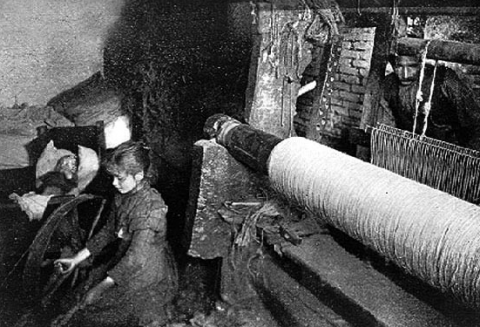
Mission
What contribution can the history of labour provide to the study of family economy? The ELHN Working Group Labour and Family Economy aims at developing a labour centered reflection on a classical topic in economic and social history: the historical forms taken by family economy in different economic, geographical and institutional contexts.
Scope
We consider the family as an economic unit and its members’ labour and activities in a broad sense, including consumption patterns and the whole range of resources’ allocation and distribution within the family. Following a flourishing literature, we would like to consider the family not only as knot of blood tights but also as an extended web taking different forms according to cultural and institutional contexts: maisonnées, kinship coalitions, active parenthood, etc. Furthermore, we would like to avoid any naïve assumptions about family cohesion and take into account the importance of conflicts and divergent goals within the family. Pursuing coherent economic, productive and social aims does not necessarily mean absence of conflictual opinions.
Both in cooperation or conflict patterns, hierarchies matter within the family production and reproduction unit. Gender relationships and generation issues are strongly connected to work distribution in nuclear family as well as in extended multigenerational households. The articulation between domestic and extra domestic work is at the core of this crucial issue. How the internal division of work is conceived and enacted in practices according to gender and generation lines?
We would like to deal with these topics in a long period perspective. Family-based production is a pervasive phenomenon not only in early modern societies but also in modern times. Recent research on small family businesses has shown that family based productive activities coexisted with highly concentrated factory productions in several European countries. In small scale production systems often production is done within the household, but a wide range of family economic activities is preformed outside the household too. The aim is thus to study how these activities are interrelated. We need to deepen historical knowledge on these small economic unities and systems, hitherto little known but crucial to understand economic development in the past and the present developing countries.
Our aim is, finally, to broaden the scope of our discussion beyond labour history. We welcome scholars interested in all related fields: family economics, homebased work, household budgets and living standards studies, women’s work, historical demography, care and unpaid work, development studies.
Activities
Recent publications:
Special Issue Family Budgets and Living Standards in Spain in the 1920s.
Áreas. Revista Internacional de Ciencias Sociales, Núm. 47 (2024). Coordinated by Cristina Borderías and Luisa Muñoz-Abeledo. Available in open access:. Áreas. Revista Internacional de Ciencias Sociales
Cristina Borderías and Luisa Muñoz-Abeledo (eds.) (2024): Desigualdades en perspectiva histórica: trabajos, salarios y género en España, siglos XVI-XX, Colección de Historia del Trabajo, Vol. 10. Barcelona, Icaria Editorial, Ediciones de la Universidad de Barcelona.
Contact
Coordinated by: Anne Montenach (anne.montenach@univ-amu.fr), Céline Mutos-Xicola (celine.mutos@udg.edu) and Beatrice Zucca Micheletto (beatrice.zucca@unito.it)
External links
- Blog: https://lfe.hypotheses.org.
- Twitter: https://twitter.com/LabourLfe
[last updated 28 January 2025]
